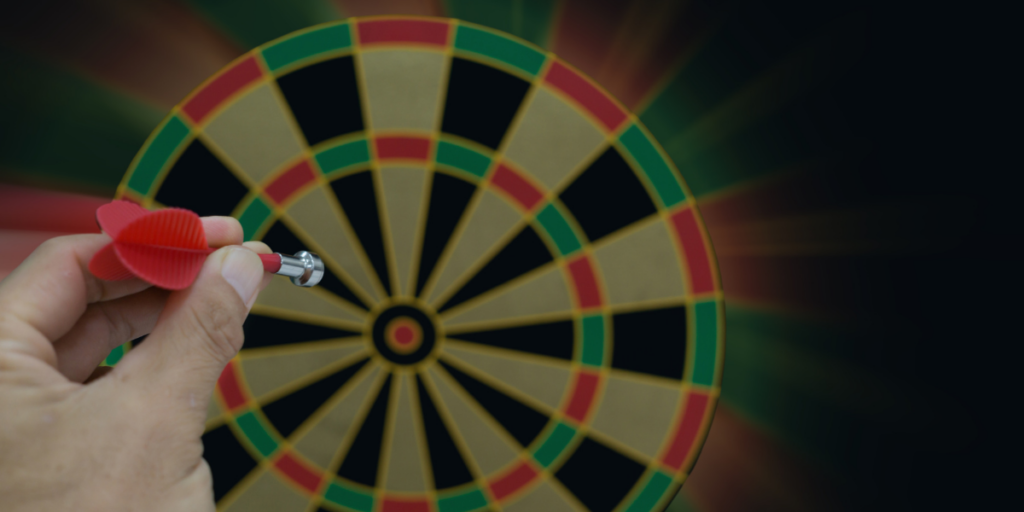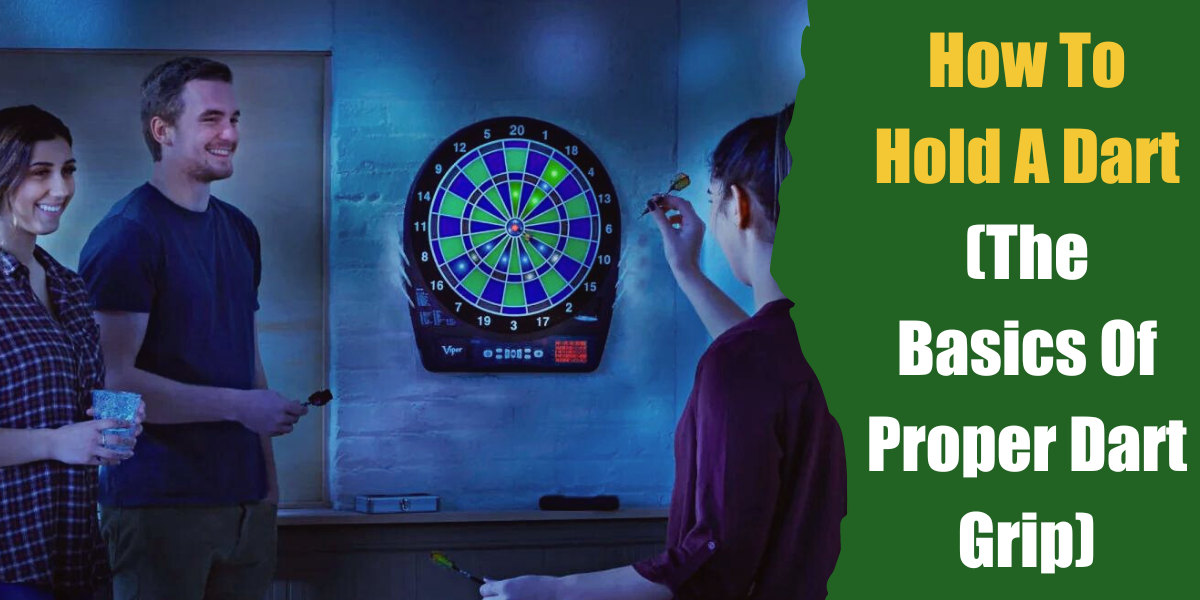I remember when I first started learning how to play darts. I simply could not get the hang of how to hold and throw the darts, which would often result in me being the laughingstock down at the sports club.
As all my friends at the time were keen dart players, I thought it was about time I perfected the art of dart playing, and after many failed attempts, and lessons from my pals, it wasn’t long before I was competing on the local darts team.
So before I could learn all the ins and outs of dart playing, the first thing I needed to master was correctly holding and throwing the darts to aim for precision.
Of course, this was many, many years ago, and without tooting my own horn, I’ve only got better as time has passed, and I would like to share those skills with other hopeful dart players.
If you’re new to darts and wondering where to begin, then getting the hang of holding the throwing the darts is the place to start. You probably don’t think there’s much to it, but in fact, it’s the key to the entire game, and once you’ve got it down, you’ll be getting those bullseyes in no time.
Holding the Dart

There are a few things to pay attention to when holding a dart that will ensure precision throwing. However, how you hold your dart is whatever you find the most comfortable, and every dart player has their preferred method of holding the dart.
Here are three things to consider when taking grip of your dart:
The Grip
You want to ensure you’ve got a firm grip on your dart. A loose grip can be a risk factor, as it could fly out of your hand at the wrong time. However, at the same time, gripping your dart too hard can mean you don’t have the same precision.
The Barrel
Darts come in various shapes and sizes, which can determine how you hold them. This can be something worth looking into before you buy, as people’s preferences differ. What one person finds comfortable, another may not. For example, I love these Steel Tip Darts 12 Pack Set with Nonslip Iron Barrel for comfort and weight distribution. I also love the style.
Another great option, especially for beginners in darts, is this Paper Wound Dart Board with Six Brass Tipped Darts. It’s inexpensive and can be hung anywhere in the house, meaning you can get your practice in at home.
Consider the length of the barrel when looking at darts, a longer barrel allows for more fingers to grasp the dart. At the same time, a shorter one means you can grip the dart without the use of all fingers.
Fingers
When I was first being taught how to hold a dart correctly, I had no idea there were many different fingers that you can use, and it’s all down to preference. For example, while some people might use their thumb and index finger, others might use all five fingers for a full grip. I use my thumb, index finger, and middle finger for extra grasp.
Handy Tips on How to Hold a Dart
Holding a dart very correctly is a common struggle when people first start, so below are some handy tips to get you on your way.
- Point the Dart Up – When you’re ready to release the dart, ensure the tip is pointing slightly upwards. This way, your dart won’t take a nosedive when gravity takes hold.
- Determine the Center of Gravity – Get a good feel for your dart, place it on your palm, and feel the weight. When you hold your dart, there should be a small gap between the center of gravity of the dart and your hand.
- Keep Fingers Out of the Way – If you’re holding your dart with two or three fingers, then ensure that your free fingers are as out of the way as possible by moving them to the side, don’t make a fist, as this will make accuracy challenging.
Preparing to Aim

If you watch professional dart players, you will notice that aim, consistency, and a steady hand is key. Each time they approach the dartboard, they assume the same stance and distance, stand hard, and prepare to throw.
Below I will talk you through, step-by-step, how to stand and how to control each part of your body for the perfect alignment from your shoulder down to your wrist. This way, you will be able to conquer the natural parabolic curve that occurs when a dart is thrown.
Shoulders
One part of your body that should remain as still as possible while throwing a dart is your shoulders. Even as your arm extends and your wrist flexes, your shoulder does not move.
Elbows
While preparing to aim your dart, you bring your arm backward, hand towards the shoulder, and then to a 90-degree angle with your elbow remaining in the same position, pointing towards the dart board.
The Wrist Snap
The key to throwing a dart with precision is all in the wrist action. A wrist snap means that the dart leaves your hand with a bit of force behind, causing it to travel at a higher speed. However, it’s important to allow the wrist snap to happen at the perfect time; leave it too late, and your dart will be fired too low toward the floor.
The Follow Up
So that’s how you hold and prepare to throw a dart for ultimate precision. One more thing I should mention is that if you want to end your throw perfectly, make sure you follow up your throw after the release, pointing your fingers towards the target and keeping your arm straight. Want to learn more about the art of darts? Check out my guide on the master of scoring darts.



